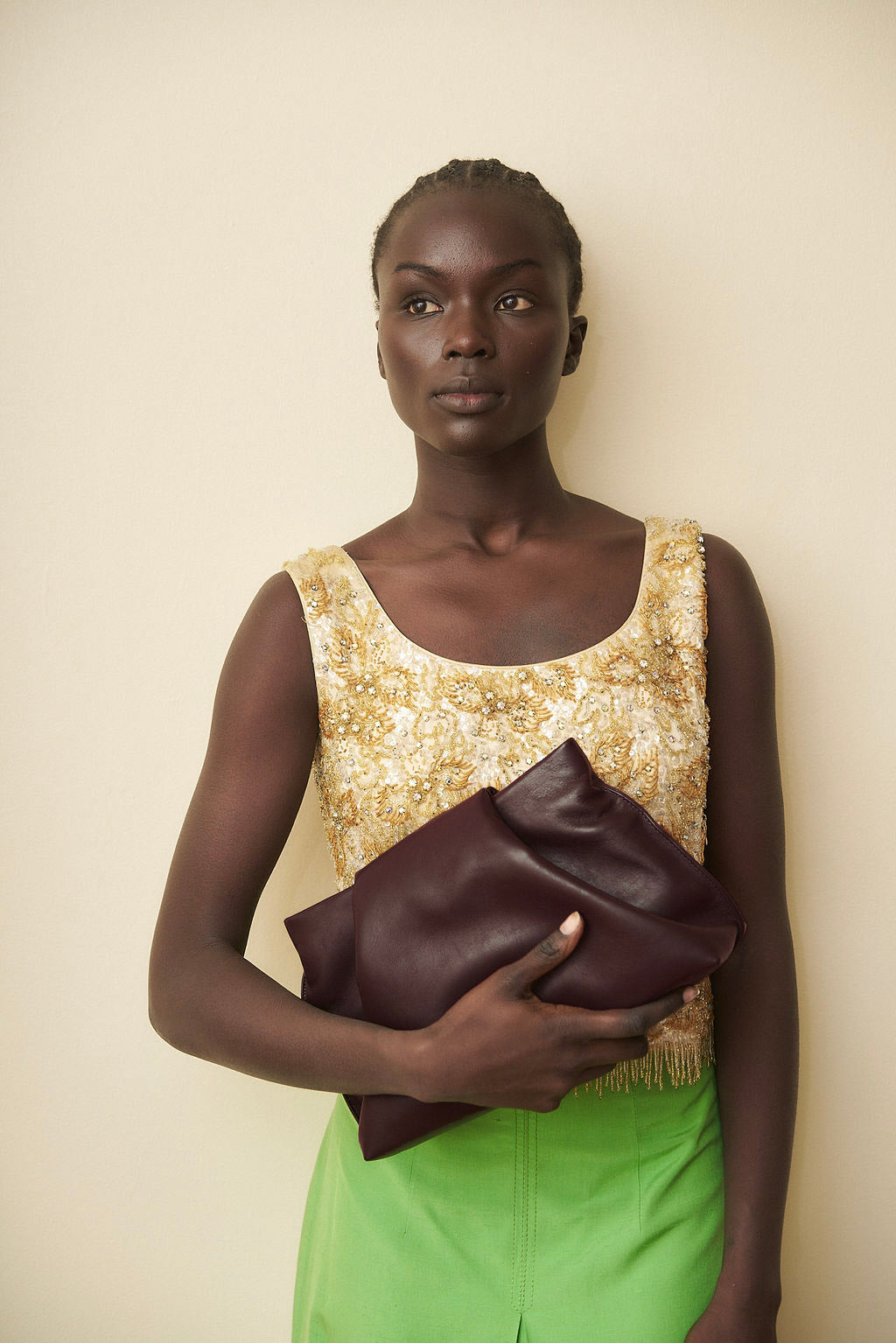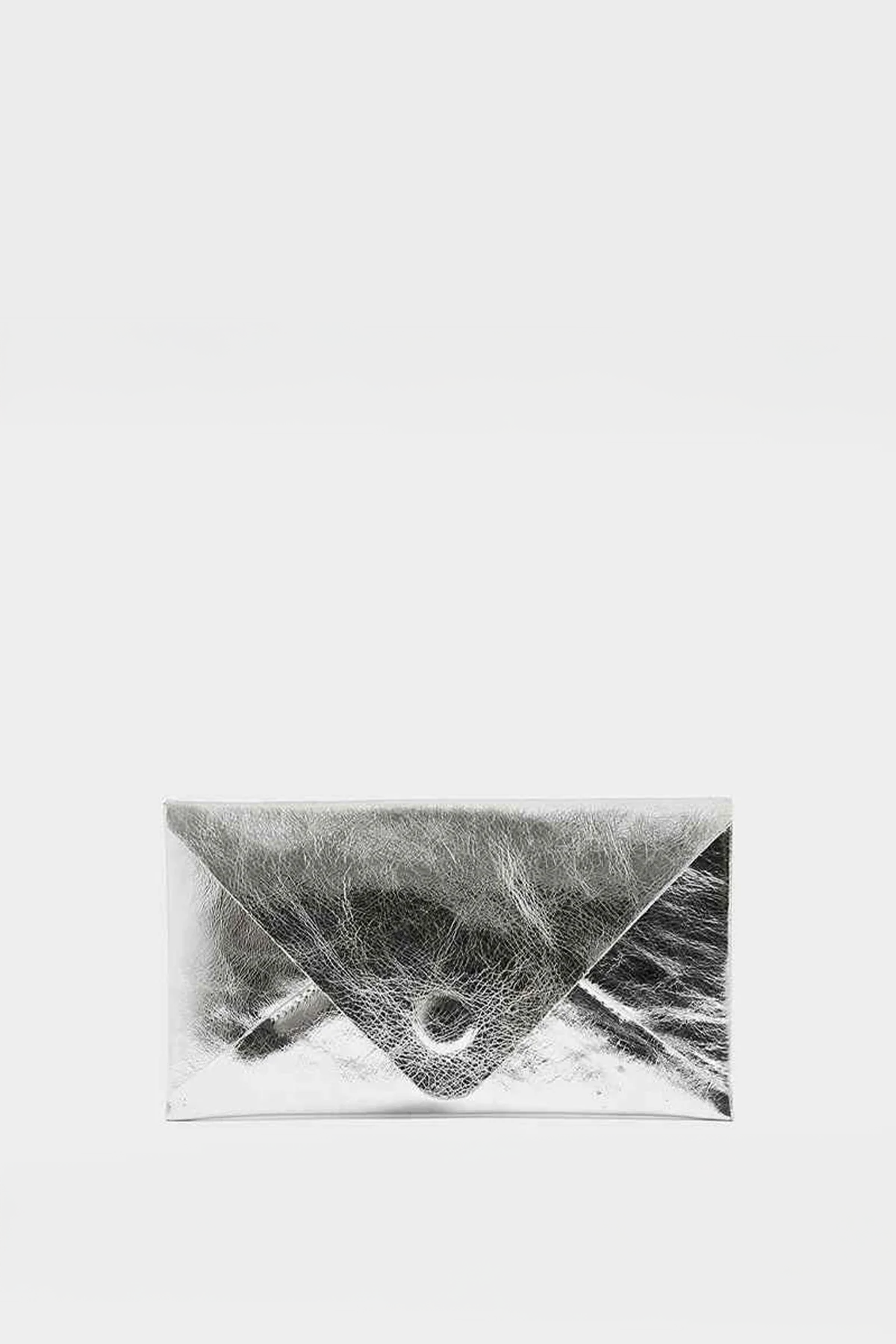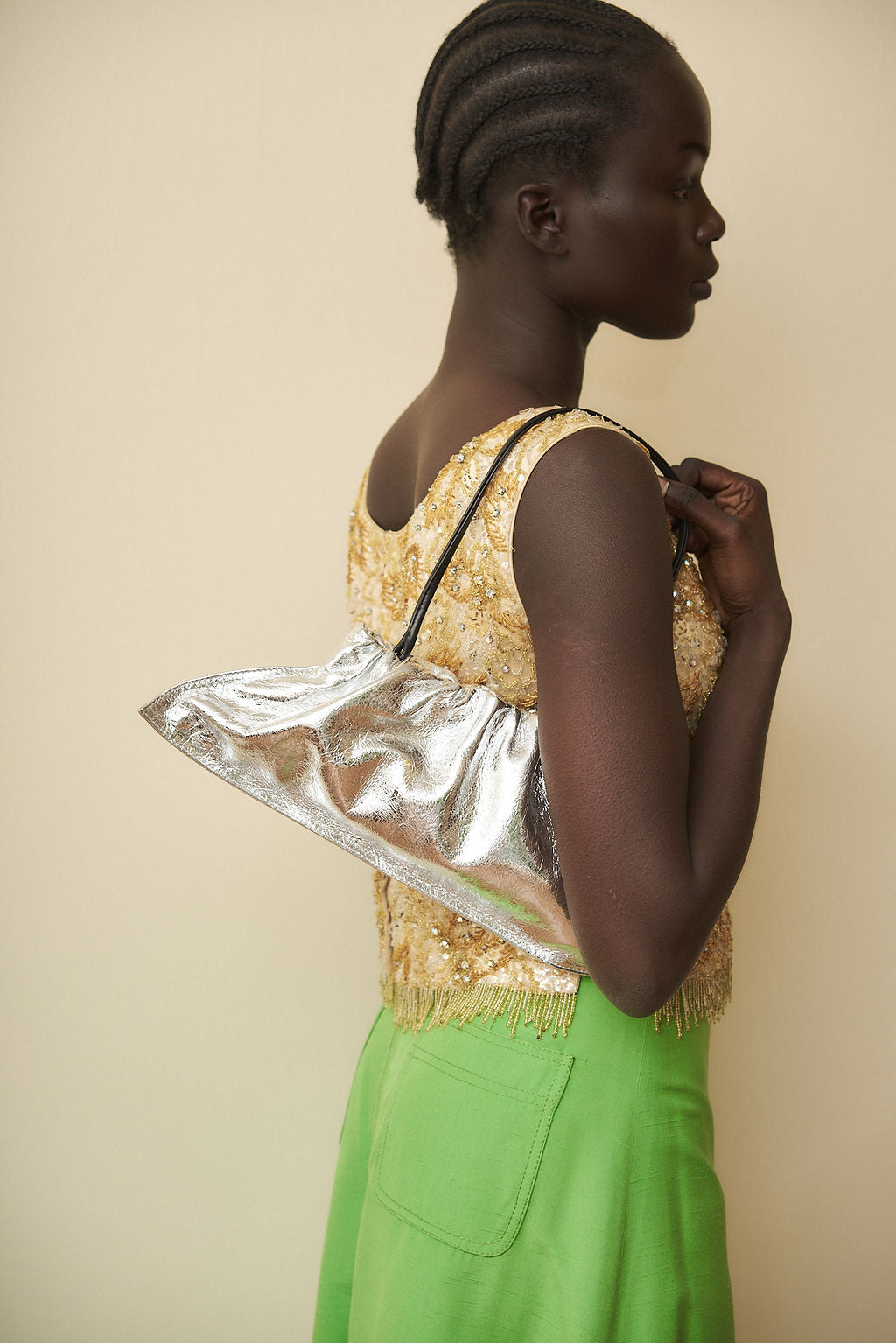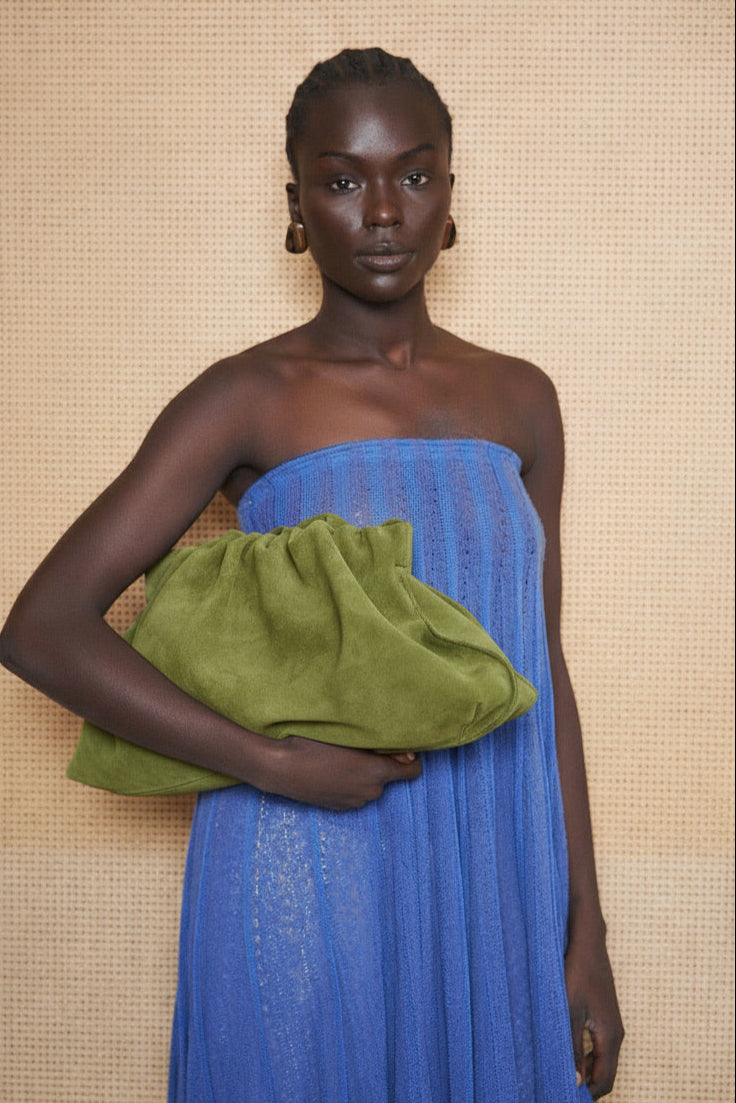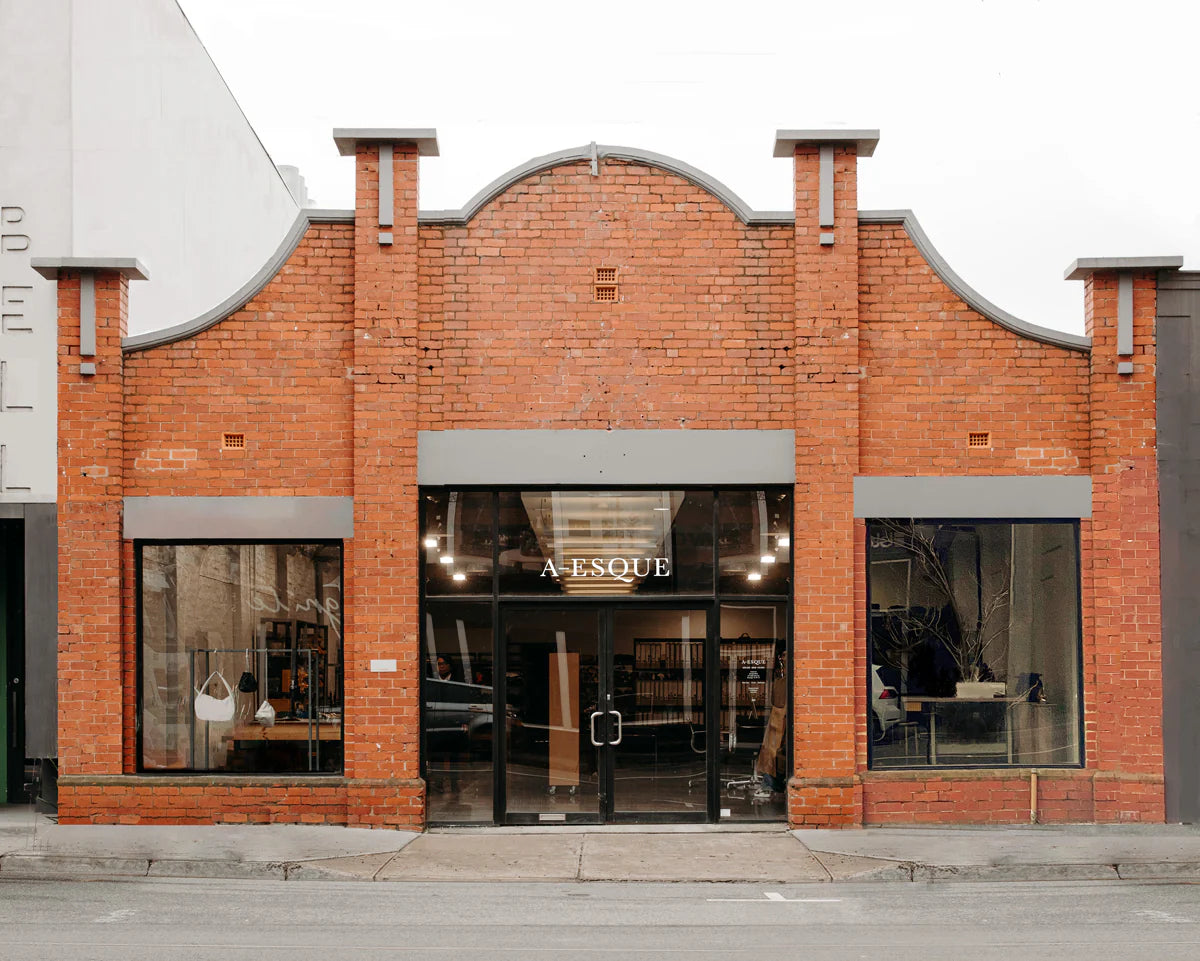Our Practices
From the inception of A-ESQUE, Founder and Creative Director Amanda Rettig’s intention was to be immersed in the process of making and harness this proximity to shape an agile system of in-house design, development and production.
A-ESQUE commenced with practices centred on controlled production, making locally and making responsibly, which deeply resonated with Amanda; it was not a matter of identifying with a certain movement from the outset, but upholding the values of craftsmanship, quality rather than quantity and highly considered production and consumption practices.
As awareness of the environmental and social impacts of the fashion industry have grown, A-ESQUE recognises how its own practices and values embraced since 2012 align with movements, such as slow fashion, in the sustainable and ethical fashion space.
Localising the supply chain aspects of design, development and production allows for a nimble, mindful, craft and product centred DNA. This in turn enriches design and production practices for people and the planet.
The unvarnished reality.of fashion is that its fundamentally not sustainable by nature due tothriving on constant innovation and consumption, which directly contradicts the principles of sustainability. Therefore A-ESQUE finds focus in an ever evolving conscientious around its principles & projects.
A-ESQUE makes no claims, rather commits to an unwavering practise in improved decisions each day, with the aim of reducing social and environmental footprint across the operation.
Regarded as a moral duty, with acknowledgment that every action carries significance.
Adopting a comprehensive approach to embodying responsibility as a brand includes embracing transparency within supply chain. Recognise that what matters is the cumulative impact of choices, regardless of their scale. The approach centres on evidence and results, driving an effect on meaningful change.
Ethos
1.Openly centred in observing where A-ESQUE are in the process toward greater sustainability.
2. Valuing the practices established at the heart of A-ESQUE
3. Continuing to grow in a commitment toward social and environmental responsibility through actions and mindset.
As a team, A-ESQUE celebrates the connection between products, people and place.
A-ESQUE actively nurture relationships with clients & community. Valuing a collaborative team, who facilitate the vision of A-ESQUE each day is a guiding principle.
Experimentation, transparency, and sustainable practices in supply chain remain important through evolution & growth. With systemic change essential for the future of fashion, A-ESQUE is wholeheartedly committed to continual transformation.
Considered Design
- Design exists through a thoughtful iterative process that draws from an Archive that has been developed since inception. Informing new pieces, refining timeless aesthetics and wearability to align with the evolving desire of clients.
- A season less design approach keeps releases nimble and thoughtful. Offering new work consciously with flexibility and in response to the shifting environment we live in.
- The design approach strives to balance aesthetic desirability with a strong application of functionality, durability and versatility, which are key characteristics of slow fashion design.
- A-ESQUE leather and hardware are sourced from ethical long standing supplier partners.

Lean and Local Production
The A-ESQUE Atelier produces handcrafted pieces exclusively made in Melbourne.- Through decades of acquired leather knowledge,
- Traditional, slow production techniques and
- Contemporary skills across cutting, skiving, hand constructing and sewing
- Adopting a practice of lean production, controlling inventory by maintaining a low level of stock to avoid oversupply. A-ESQUE do not make more than what is needed.


